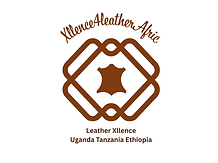
Αριθμός Αναφοράς
101183417-ERASMUS-EDU-2024-CB-VET
Χρηματοδότηση
Erasmus+ Capacity Building for VET
Διάρκεια
01/01/2025-31/12/2027
Εταίροι
Links

The Erasmus+ Xllence4LeatherAfric project aims to enhance the capabilities of the leather industry in Uganda Tanzania and Ethiopia. Over three years, the project partners will focus on improving vocational training, promoting sustainability, and driving the economic and social development of the sector in both countries. Despite having valuable resources, such as a large livestock population, the industry faces significant challenges that hinder its growth potential.
The Xllence4LeatherAfric project stems from the challenges limiting the growth of the leather industry in the three African countries with great economic potential in this sector but currently facing considerable underdevelopment. In Tanzania, despite the abundant supply of raw materials thanks to a large livestock population, the industry struggles with issues such as inefficient waste management, reliance on chemicals for processing hides and skins, and deforestation caused by grazing activities. In Uganda, the industry is further hampered by health concerns and the dominance of small, family-run businesses that lack the capacity to compete on a global scale. The same applies to Ethiopia.
In this context, the Xllence4LeatherAfric project aims to enhance the sustainable development and competitiveness of the leather industry in Tanzania, Uganda and Ethiopia by strengthening the capacities of vocational education and training (VET) institutions.
OBJECTIVES
- Improving vocational training with updated content, practical courses and extra-curricular training for students and workers interested in leather processing.
- Promoting environmental sustainability through the development of modern and sustainable production strategies, involving the efficient use of resources and the implementation of advanced waste management techniques.
- Fostering economic and social development by creating new job opportunities, reducing unemployment and strengthening existing businesses and encouraging the creation of new ones.
EXPECTED RESULTS
- Establishment of Centres of Excellence: setting up 2 centres of excellence in Tanzania and Uganda, which will function as reference points for technical training, technological development and support to the leather sector. Ethiopia will be benefited by acquiring special knowledge and training.
- Capacity building: training of students, academic staff and workers in the leather sector in Ethiopia, Tanzania and Uganda, through the development of modernised training programmes.
- International cooperation: strengthening the links between European and African institutions, facilitating the exchange of knowledge, experiences and good practices that benefit both the educational and industrial sectors.





